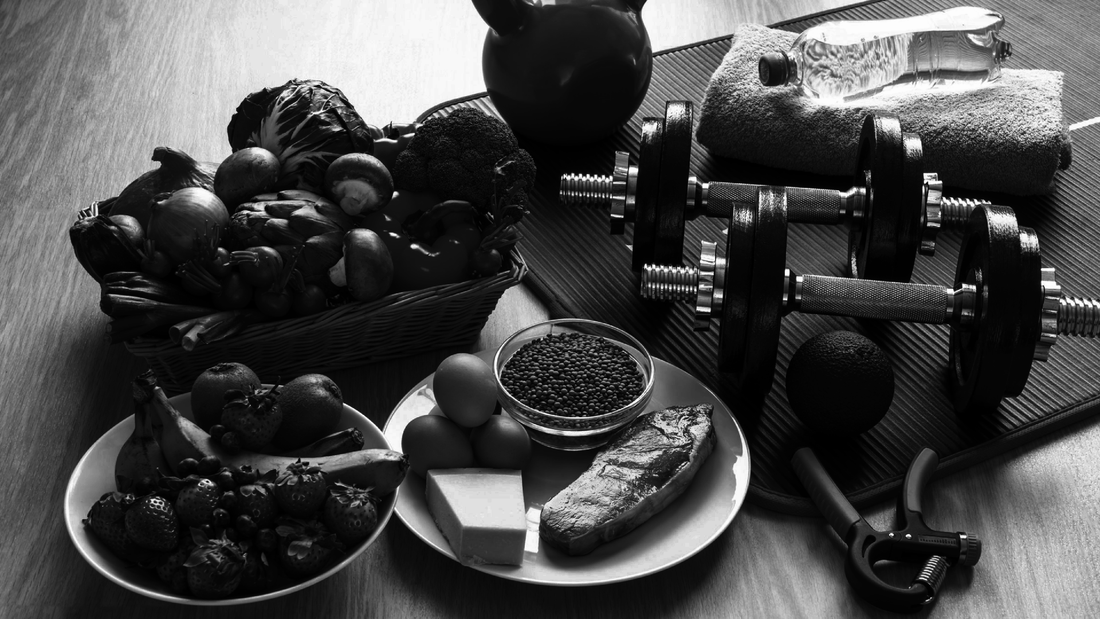
What’s More Important - Diet or Training?
It’s one of the oldest questions in fitness: what matters more - your workouts or your meals?
Some say “you can’t out-train a bad diet.” Others argue that training is the real engine behind transformation, and nutrition is just support. And while both sides have a point, neither one gives the full picture.
The truth is more balanced - and a lot more useful if you’re trying to get real results without wasting time.
Let’s break this down clearly, without exaggeration or overthinking.
If Your Goal Is Fat Loss - Diet Leads
If you want to lose fat, there’s one thing that matters above all else: eating in a calorie deficit. This simply means consuming fewer calories than your body uses each day. When that deficit is sustained, your body starts burning stored fat for fuel.
That’s not just theory. It’s how fat loss works, every single time.
Now, training plays a supporting role here. Resistance training helps preserve muscle mass while you’re in a deficit. It tells your body, “we still need this tissue - burn something else instead.” It also boosts your daily energy expenditure slightly, especially if you’re lifting hard.
But training can’t erase poor nutrition. A solid workout might burn 300–500 calories. One extra fast food meal can wipe that out in minutes. If you’re eating in a surplus - even if it’s “clean” food - your fat loss will stall.
On the other hand, if your nutrition is dialed in and you’re consistently in a small deficit, you can lose fat without training at all. It’s not ideal - you’ll lose muscle too, and your body won’t look its best - but it’s possible. That tells you all you need to know about which lever matters most for fat loss.
So if your priority is getting lean, focus first on diet. Training still matters, but your body composition is driven by the choices you make in the kitchen.
If Your Goal Is Muscle Gain - Training Leads
When it comes to building muscle, the rules shift. Your diet needs to support growth, but it doesn’t drive it.
What builds muscle is training hard enough to force adaptation. That means:
- Lifting heavy with control
- Training close to muscular failure
- Using progressive overload over time
- Recovering fully between sessions
Without that stimulus, your body has no reason to grow - no matter how perfect your diet is.
That’s why someone can eat a high-protein, high-calorie diet and still look the same month after month. They’re not applying enough training stress to trigger change. They’re feeding a body that hasn’t been challenged to grow.
Of course, food still matters. You need sufficient calories to support recovery and growth. You need enough protein to rebuild damaged tissue. And you need carbs and fats to fuel performance and hormone function.
But diet only supports what your training initiates. If your workouts are low-effort, scattered, or never close to failure, no meal plan can make up for it.
Training Shapes Your Physique. Diet Reveals It.
Here’s a useful way to frame it:
- Training builds the structure - your muscle, posture, and proportions.
- Diet reveals the result - through leanness, definition, and reduced body fat.
Think of it like sculpting. Training is the tool that shapes the material. Diet is the chisel that brings the form into focus.
This explains why someone can lose 20 pounds and still look “soft.” They dropped fat, but had no muscle underneath to give them shape. It also explains why someone can gain muscle but appear bulky or puffy - the muscle’s there, but it’s hidden under excess body fat.
You need both to build a body that actually looks the way you want it to.
For muscle gain, training comes first - because without it, there’s no reason for your body to adapt.
Consistency Wins - Not One or the Other
People love asking “which one matters more” because they’re looking for permission to neglect the one they dislike.
They want to eat perfectly but skip the gym - or train hard and eat whatever they want.
But results don’t come from picking a side. They come from doing both, consistently, even if imperfectly.
- Training without structure just leaves you tired.
- Dieting without effort just makes you smaller, not better.
- Doing both halfway gets you nowhere.
You don’t have to be extreme. You don’t need to be perfect. But you do need to give both the attention they deserve.
So, Which One Really Matters More?
It depends on the goal.
- For fat loss: diet leads, training supports.
- For muscle gain: training leads, diet supports.
- For body recomposition (losing fat while building muscle): both must be aligned.
And for long-term success, consistency with both is what separates those who maintain results from those who constantly start over.
You don’t need magic. You need structure.
Final Word
It’s not about choosing between diet and training. It’s about understanding the role each one plays - and making sure you’re not trying to shortcut one by doubling down on the other.
If you’re serious about changing your body, you need to train with intent and eat with structure. Neither side can carry the load on its own.
Stop looking for one thing to do all the work. Balance both, stay consistent, and the results will follow.
That’s not just the answer. That’s the truth that always works - even when the trends change.
